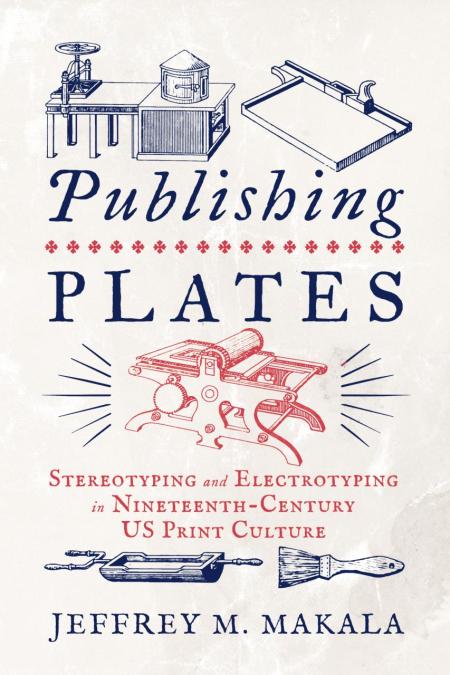
American Antiquarian Society
185 Salisbury Street
Worcester, MA 01609
United States
Invented in the late eighteenth century, stereotyping—the creation of solid printing plates cast from movable type—fundamentally changed the way in which books were printed. Publishing Plates chronicles the technological and cultural shifts that resulted from the introduction of this technology in the United States. The commissioning of plates altered shop practices, distribution methods, and even the author-publisher relationship. Drawing on archival records, Jeffrey M. Makala traces the first use of stereotyping in Philadelphia in 1812, its adoption by printers throughout New England, and its effects on the trade. He looks closely at the printers, typefounders, authors, and publishers who watched small, regional, artisan-based printing traditions rapidly evolve, clearing the way for the industrialized publishing industry that would emerge in the United States at midcentury. Through case studies of the printer Mathew Carey and of the American Bible Society, one of the first publishers of cheap bibles, Makala explores the origins of the American publishing industry and American mass media. In addition, Makala examines changes in the notion of authorship, copyright, and language and their effects on writers and literary circles, giving examples from the works and lives of Herman Melville, Sojourner Truth, Edgar Allan Poe, Henry David Thoreau, and Walt Whitman, among others. Incorporating perspectives from the fields of the history of technology, material culture studies, and American studies, this book presents a rich, detailed history of an innovation that transformed American culture.

Jeffrey Makala is Associate Director for Special Collections and University Archivist at Furman University in Greenville, South Carolina. He has degrees from Colgate, the University of Illinois, Trinity College, and a Ph.D. in English from the University of South Carolina. He has written on nineteenth-century American literature and book history in the Papers of the Bibliographical Society of America, Literature & History, Printing History, and The Oxford Companion to the Book. He is the co-editor of Archive: South Carolina Poetry Since 2005 (Ninety-Six Press, 2018); coedited the first comprehensive anthology of American literature about dogs: In Dogs We Trust: An Anthology of American Dog Literature (University of South Carolina Press, 2019); and his book Publishing Plates: Stereotyping and Electrotyping in Nineteenth Century US Print Culture will be published by Penn State University Press in November 2022. Over the past 20 years, he has worked in libraries at the University of Illinois, Wesleyan University, and the University of South Carolina. He is the owner/proprietor of Two Terriers Press, an experimental fine press in Greenville, South Carolina.